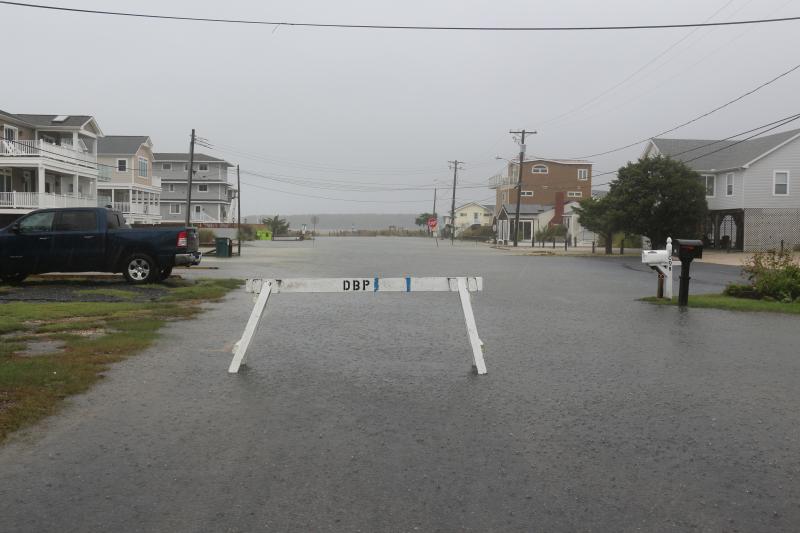Efforts to combat flooding continue in Dewey Beach, with $1 million in federal funding earmarked for a Read Avenue pump station.
Town Manager Bill Zolper said he applied for funding through Sen. Chris Coons’ Congressionally Directed Spending Requests a little over a year ago and recently learned it had been approved.
The Delaware Route 1 Flood Protection Project will be based on Read, McKinley and Dickinson streets that flood the most with water coming over Coastal Highway, Zolper said. Water from those streets, as well as from Buena, Dover and Hayden streets, all run to the stormwater outfall on Read Avenue.
“That’s why there’s always so much water on Read Avenue,” he said.
When stormwater backs up and floods the highway, emergency vehicles can’t get through, he said.
The funding approved by the federal government as part of the appropriations bill is distributed to different districts across the country that are serviced by the Army Corps of Engineers, Zolper said, noting there is no estimated date on when the Army Corps will receive funds and the project can begin.
The new pump station will be like the one on Bayard Avenue but on a smaller scale, Zolper said.
“It already has a berm, so we’re looking at a small pump,” he said.
Army Corps of Engineers Project Manager Erik Rourke said the funds appropriated by Congress are for the Army Corps to provide design and construction assistance to non-federal sponsors.
Once the Army Corps receives funding, Rourke said, the team will work with town leaders to define project requirements, develop a design scope of work and execute a cost-sharing agreement.
The town would be responsible for 25% of the total cost, Rourke said, and the cost-sharing agreement would allow the two entities to work together to develop construction plans and specifications, obtain easements and rights of entry, and secure permitting and compliance with the National Environmental Policy Act.
“In general, the process from receipt of funding to the solicitation for construction can take as long as 24 months,” Rourke said. “This time can be shortened or lengthened based on the complexity of design and any complications with easements and rights of entry.”
The Water Resources Development Act of 1992 established the cost share percentage for non-federal sponsors, Rourke said. The match can be provided by either cash or in-kind services if those services are integral to the project, he said.
“The combination of cash and in-kind services will be worked out when we meet with the town and work through the specifics of the cost share agreement,” Rourke said.
















































